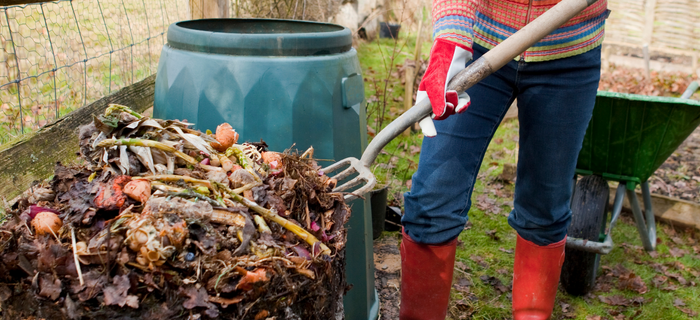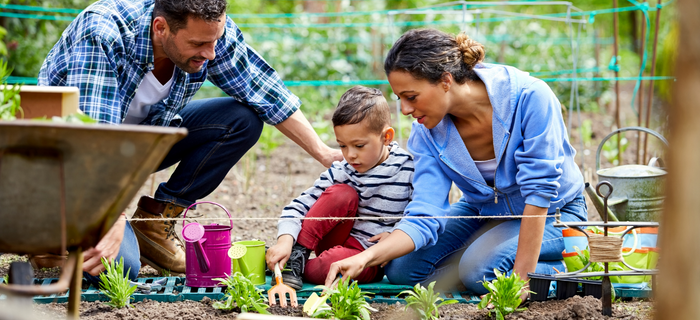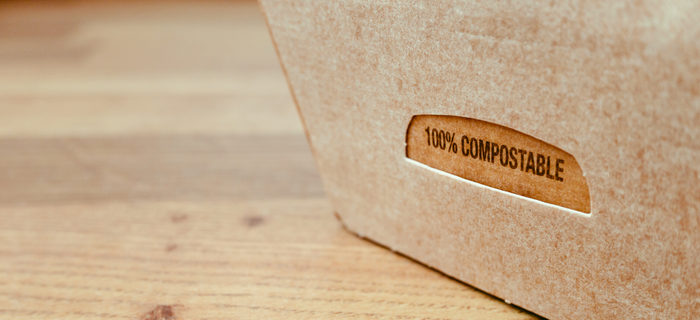How to make compost at home

How and why to make compost
Composting is nature’s way of recycling. It transforms plant waste and uncooked food — like leaves, grass clippings, vegetable peelings — into a nutrient-packed soil enricher. By composting, you’re returning these materials to the earth, closing the natural loop.
Integrating compost into your garden not only enriches the soil but fosters healthier, more robust plants. It’s about creating a thriving ecosystem in your garden. By turning waste into compost, you’re making an organic, nutrient-dense fertiliser – for free! It’s gardening going full circle; a small effort with a significant payoff for your garden, wildlife, and your pocket.
With a simple compost pile, you can recycle most of your organic household waste into a nutrient-rich food for your garden. Besides reducing your carbon footprint, composting enriches the soil, retains moisture, and suppresses weeds.
How to make compost and transform your garden waste into a valuable resource

Ready to dive in? Follow these simple steps to start composting at home:
1. Creating your compost pile or bin
- A pile on the ground is the easiest way to start. Just pick a shady spot where you can access it easily. You might want to use a tarpaulin or other sheet to cover it.
- Alternatively, a compost bin can keep things neat. Bins can be purchased from Bristol City Council, garden centres or online. You can also build your own using wood, plastic, or wire mesh.
2. Gathering:
- Green materials: vegetable scraps, fruit peels, coffee grounds and fresh lawn clippings.
- Brown materials: dry leaves, twigs, paper and cardboard.
- Avoid: meat, dairy and cooked foods, as they can attract pests and create odours.
3. Mixing:
- You want to create a balance between green and brown materials; a good rule of thumb is to maintain a ratio of 3 parts brown to 1 part green.
- Shred or chop larger items to speed up decomposition.
- If your compost begins to smell, add more brown materials and ensure it has enough oxygen in it. If you have a neighbour, friend or family member with their own compost heap, you could also ask if they will donate a small bag of their healthy compost to improve yours.
4. Watering:
- Keep your compost moist, but not wet. If your compost bin is open or only loosely covered, it will probably get enough water from the rain and air for most of the year.
- During hot weather, water your compost pile as necessary to maintain moisture.
5. Turning:
- You can add oxygen to (aerate) your compost by turning it with a garden fork or compost aerator every week or so. This helps to speed up the decomposition process and prevents odours. Not every gardener does this, but if you are able to, it can help to speed up the composting process.
6. Time:
- Patience is key! Your compost could be ready in a few weeks, or it might take several months.
- You’ll know it’s ready when it looks like soil, is a dark, rich colour and has an earthy smell.
This is just one way to compost, and probably the easiest to get started with. If you want to level up your composting skills you can explore other methods like worm farming, bokashi composting or using a tumbling composter.
Can you put compostable packaging in your home compost?

Most compostable packaging won’t break down naturally. Instead, it must be processed in a specific type of industrial composting facility. Unfortunately, there are only a few of these facilities in the country.
Currently, compostable materials;
- are not recyclable in Bristol and contaminate the recycling stream
- cannot be put in our coffee cup recycling bins
- are unlikely to break down in a home compost bin
- cannot be put in your food waste bin (compostable bin liners can be used in your food bin as they will be removed before processing)
For now, the best place for compostable packaging is the general waste bin.
